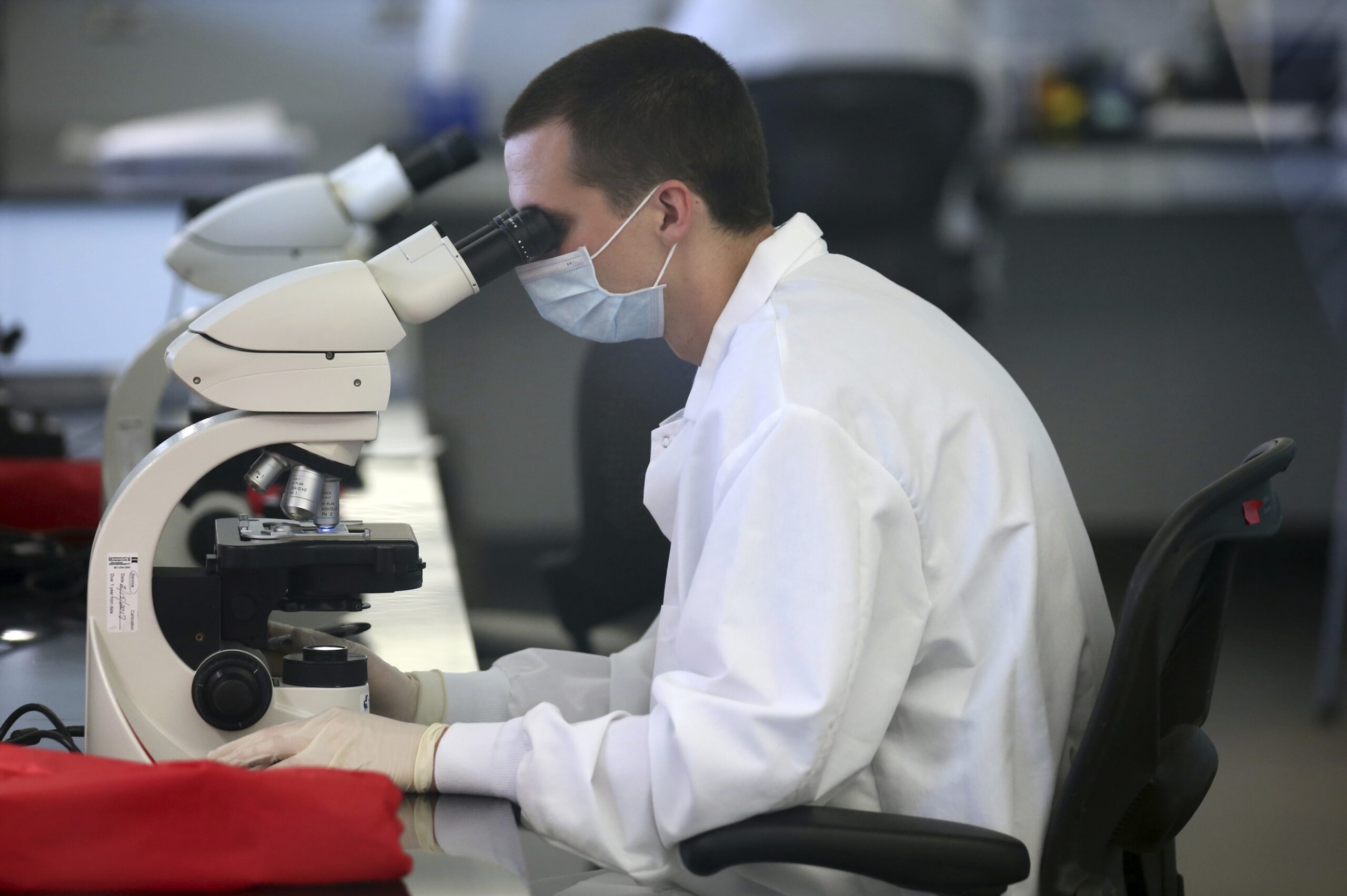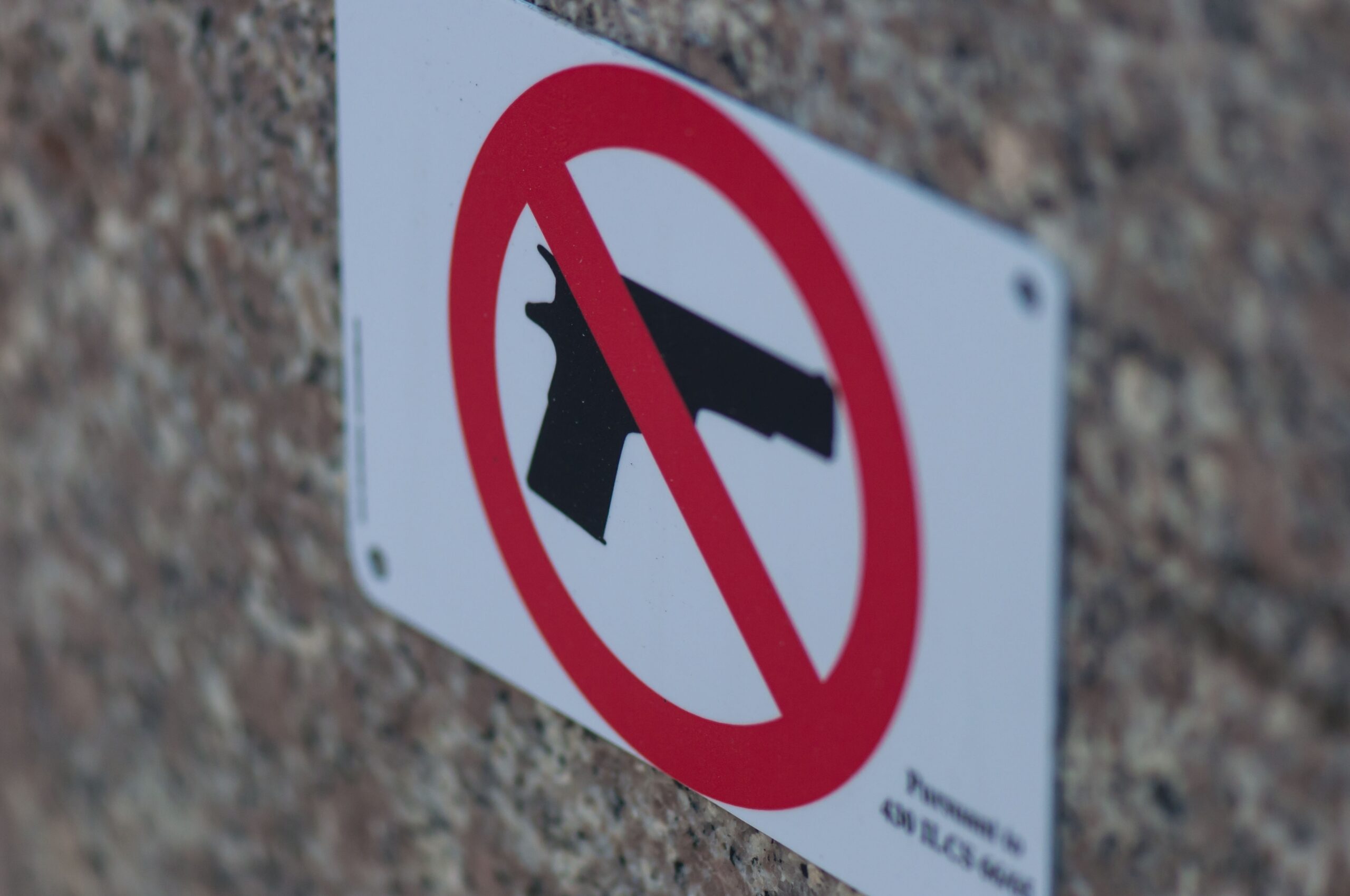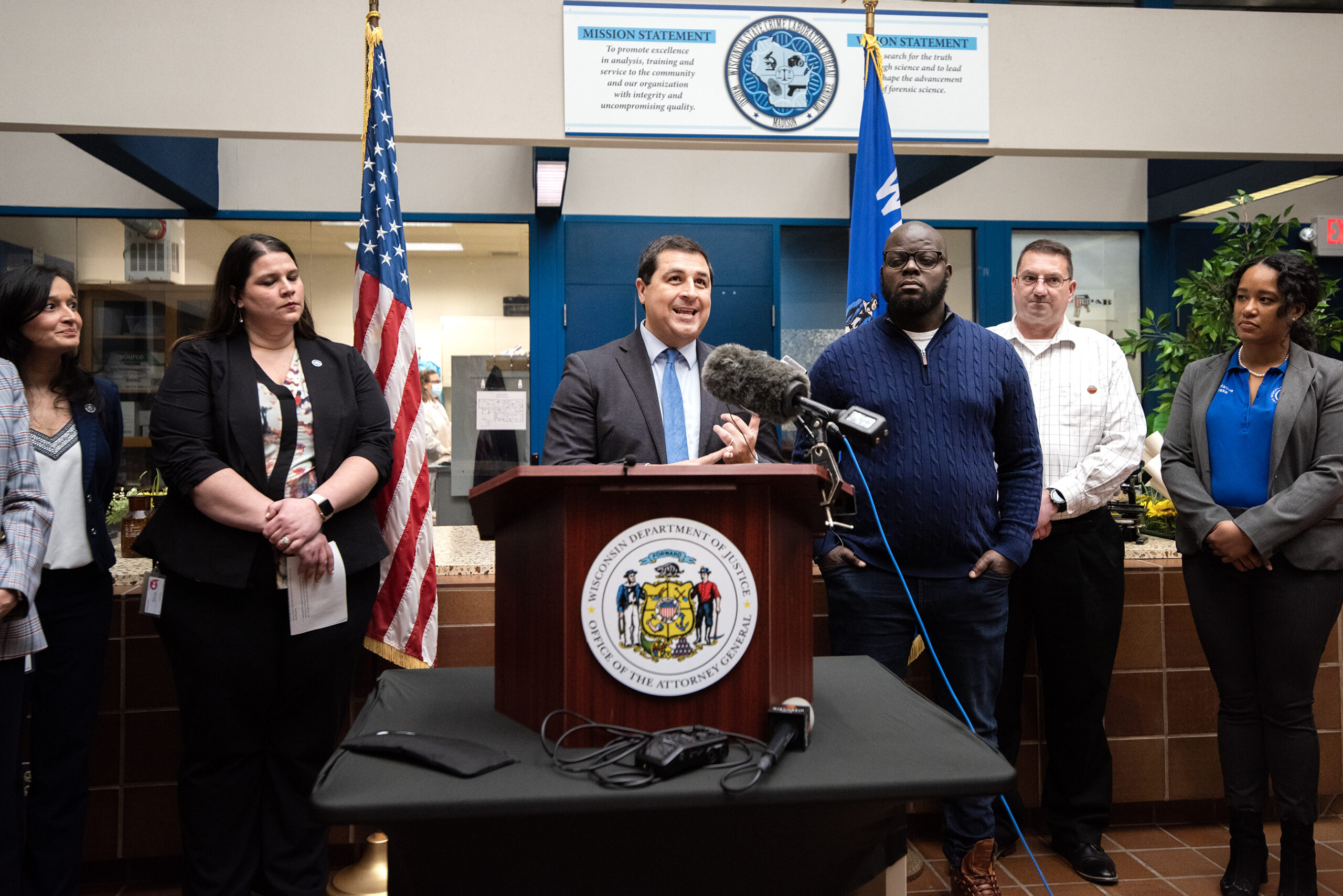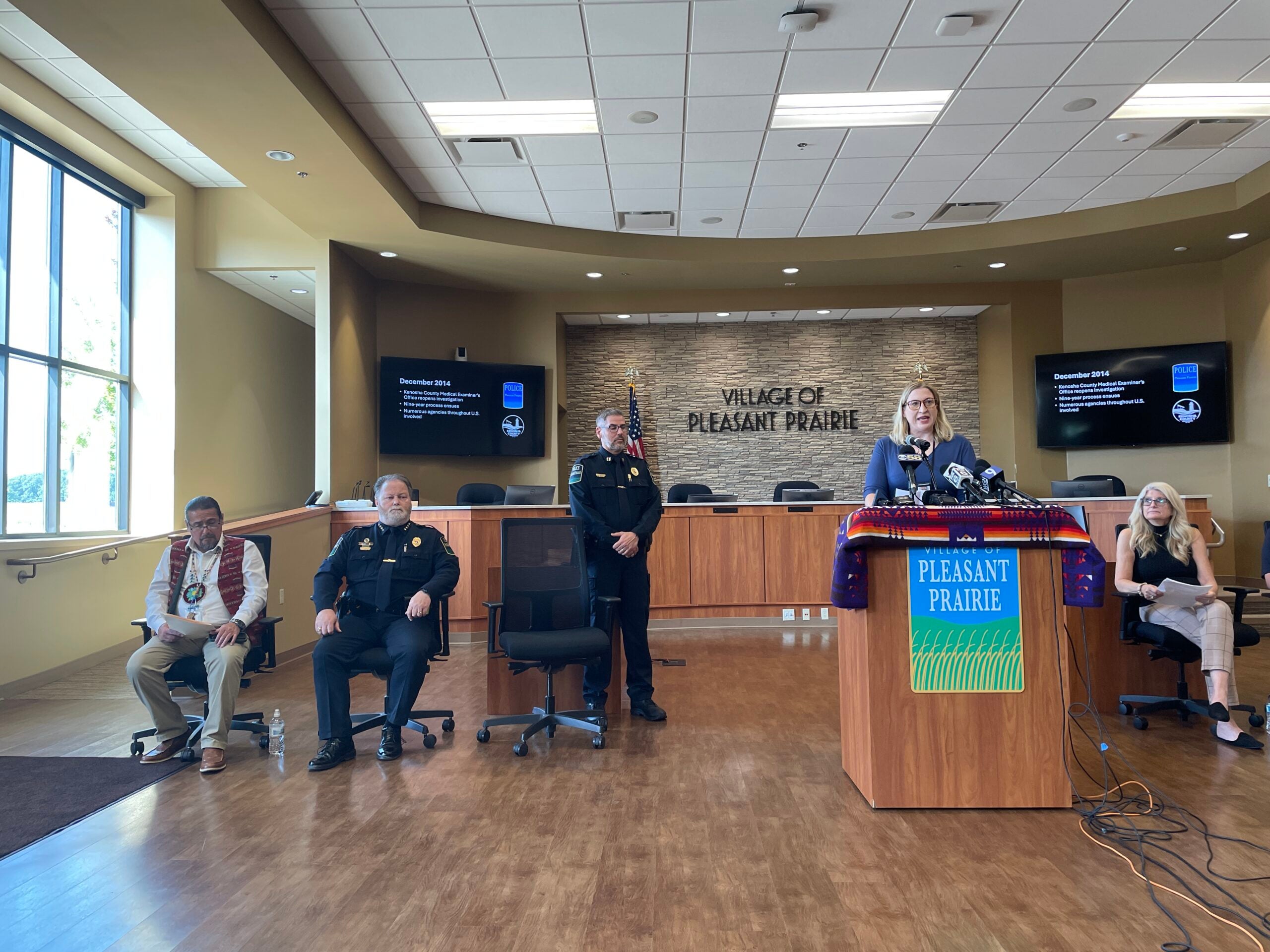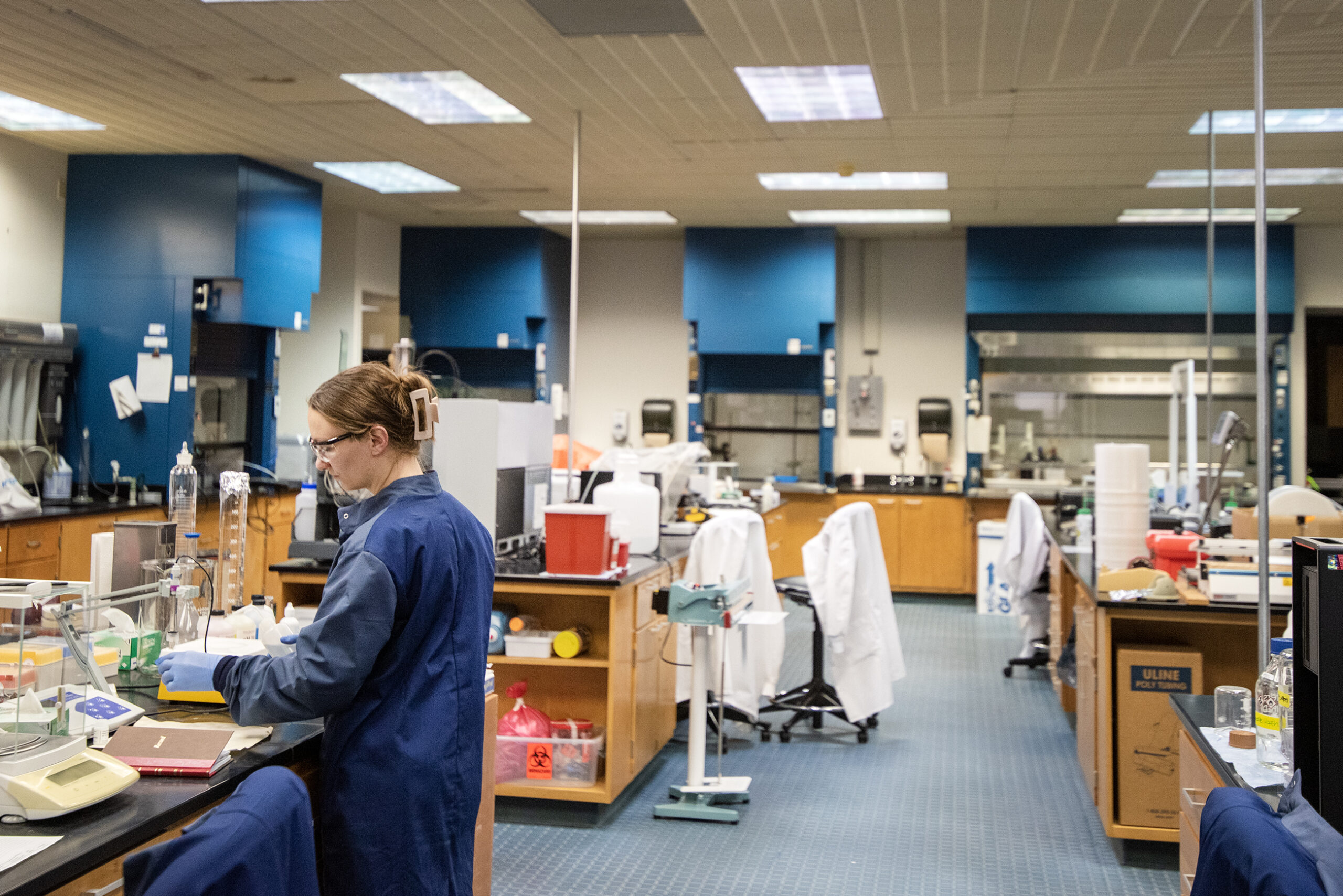Turnaround times for processing evidence at Wisconsin’s state crime labs have grown due to increasing caseloads and staff turnover.
The average time it took to process DNA, controlled substances, firearms and toolmark evidence increased between 2015 and 2017, according to data from the Wisconsin Department of Justice’s Wisconsin State Crime Laboratory Bureau obtained by Wisconsin Public Radio through the state’s open records law.
Data on processing times for 2018 is not yet available.
Stay informed on the latest news
Sign up for WPR’s email newsletter.
The longest turnaround times were related to forensic firearms and toolmark testing. Toolmark refers to evidence left by tools used in breaking and entering cases. According to the report, it took more than five-and-a-half months for firearms testing to be completed and nearly one-and-a-half years for toolmark results.
A crime lab report for 2017, noted a 19 percent increase in the number of cases submitted that year compared to 2016. It also showed an 88 percent increase in the number of cases worked on compared to 2016. The report noted a new cold case initiative, complexity of items submitted and turnover in the unit as drivers of increased turnaround time.
Cases requiring testing of suspected controlled substances also increased from 42 days in 2015 to 80 days in 2017. The caseload in this area remained relatively stable during that timeframe, but a loss of trained analysts was mentioned as a driving factor in the increased processing time, according to the 2017 report.
DNA testing took an average of 76 days to be processed by state crime labs in 2017. This was the longest turnaround time in the last seven years. There was a 29 percent increase in the number of cases submitted to the labs as well as a 45 percent increase of sexual assault cases between 2016 and 2017, according to the report.
Matthew Krische is a defense attorney in Eau Claire who said prolonging court cases isn’t unusual when waiting for evidence like toxicology screenings from the crime lab.
“I have had cases where we tell the judge we need more time because we need to see what the toxicology screen is going to be first,” Krische said.
He said that can be frustrating, especially when a defendant is facing serious criminal charges.
“If a case drags on, it’s always going to be a concern because are people’s memories going to fade? Will evidence go stale? How does this affect my client’s life?” Krische said. “So, that’s always of a great concern.”
Recently-elected Wisconsin Attorney General Josh Kaul, who criticized former Republican Attorney General Brad Schimel for a backlog of DNA tests in last year’s campaign, downplayed the increased caseload noted by crime labs in 2017.
“We actually haven’t seen much of an increase in DNA submissions over the last several years but there has been a fairly consistent increase in turnaround times and that’s a good sign, I think, that we need more staff to address that,” said Kaul. “We also have delays for firearms and toolmark testing that I think need to be reduced. So, making sure that we reduce those delays is going to be an important area of focus for us.”
As for the loss of trained analysts cited by the 2017 crime lab report, Kaul said he’s open to pay raises in hopes of stemming turnover at the state’s crime labs.
“One of the things we want to try to do is address the pay issue, hopefully with a pay progression program,” Kaul said.
Wisconsin Public Radio, © Copyright 2025, Board of Regents of the University of Wisconsin System and Wisconsin Educational Communications Board.
